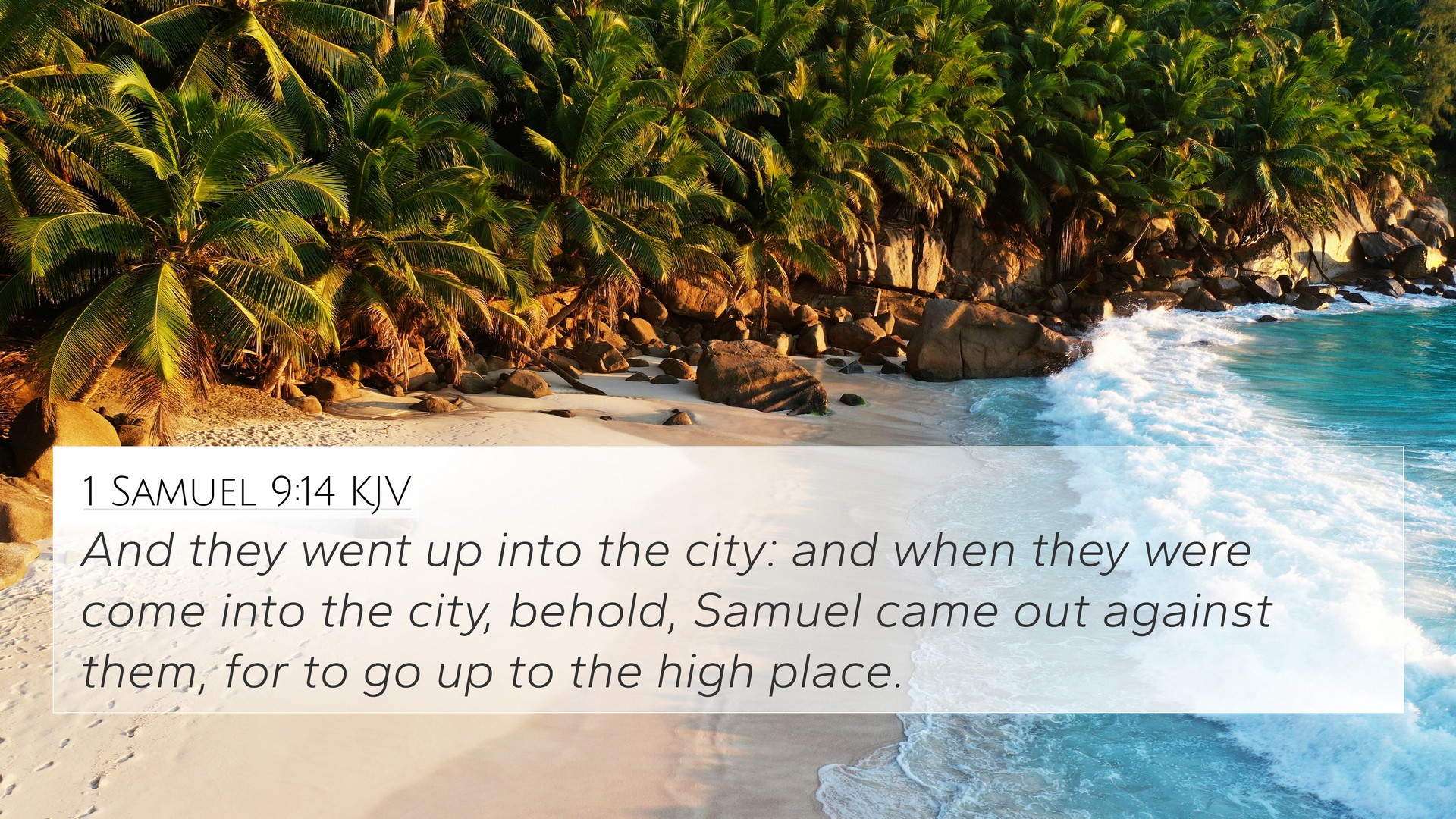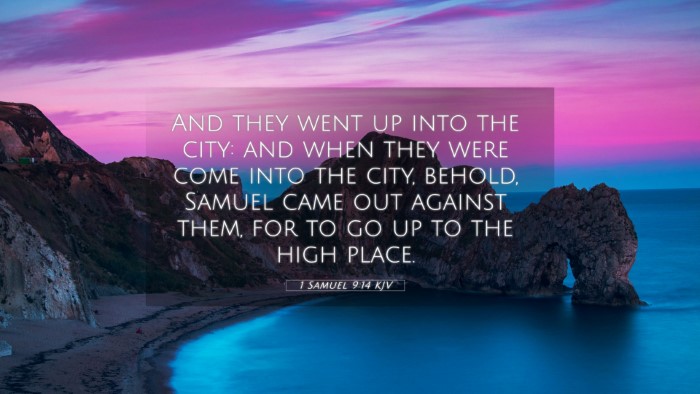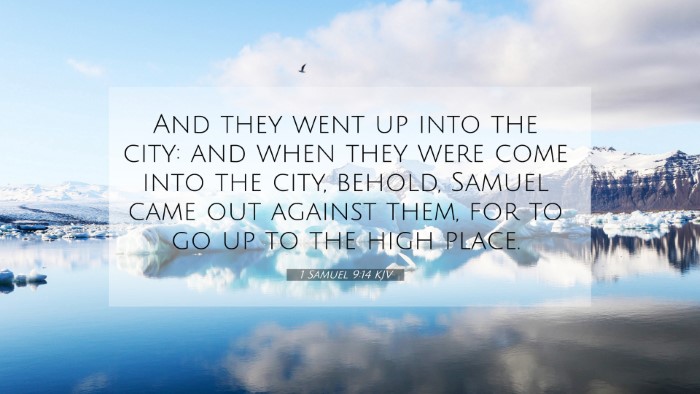Understanding 1 Samuel 9:14
1 Samuel 9:14 states: "And they went up into the city; and when they were come into the city, behold, Samuel came out against them, for to go up to the high place."
This verse serves as a pivotal moment in the narrative of Saul's selection as king. Here, we see a blend of divine sovereign action and human agency, indicating that God's plan involves both direct interventions and the natural unfolding of events.
Commentary Insights
Matthew Henry's Commentary
Matthew Henry emphasizes that the arrival of Saul in the city at this moment is no coincidence. The providence of God orchestrates these events, highlighting the theme of divine guidance throughout the Book of Samuel. Henry notes that Samuel was using this opportunity to prepare for the significant task of anointing Saul, thus creating a pivotal connection between fate and divine purpose.
Albert Barnes' Notes
Albert Barnes elaborates on the importance of the high place mentioned in the verse. He explains that this location was often associated with worship and sacrifice in Israel, pointing to the spiritual climate that accompanied Saul's physical journey. This connection illustrates not only Saul's physical quest but also the religious undertones that accompany Israel's transition to monarchy.
Adam Clarke's Commentary
Adam Clarke draws attention to the significance of the meeting between Saul and Samuel. He suggests that their encounter was divinely orchestrated not just for the purpose of king-making, but also as a prophetic appointment. Clarke posits that the mention of the high place symbolizes the transition from judges to kings, indicating a new order in Israel's history.
Thematic Connections and Cross-References
This verse is intricately linked with several other passages within the Scriptures that shed further light on its meaning:
- 1 Samuel 8:5: The Israelites demand a king, showing their desire for human leadership over divine guidance.
- 1 Samuel 10:1: Saul’s anointing by Samuel is a direct continuation of the narrative, culminating from this moment of encounter.
- Deuteronomy 17:14-15: These verses outline the principles of kingship, establishing a foundation for understanding Saul’s future as king.
- 1 Samuel 16:1: God directs Samuel to anoint a new leader, reinforcing the theme of divine orchestration presented in 9:14.
- Acts 13:21: A reference to King Saul's selection illustrates the ongoing legacy of this pivotal moment in Israel's history.
- 1 Samuel 3:19-21: God’s providence through Samuel emphasizes his role as a prophet in guiding the nation.
- 2 Kings 23:35: Highlights the consequences of leadership choices in Israel, providing a historical perspective on kingship.
Comparative Analysis and Inter-Biblical Dialogue
The connections between this verse and other biblical texts provide a rich canvas for a more profound understanding of the Scriptures. By understanding these linkages, we engage in a broader conversation across the Bible that enriches our study.
Tools for Bible Cross-Referencing: To grasp these connections effectively, employing resources such as a Bible concordance or a structured cross-reference Bible study guide can illuminate the relationships between verses and themes.
Further Reflective Questions
When analyzing this verse, consider the following reflective questions:
- What do we learn about God’s timing from Saul’s encounter with Samuel?
- How do the aspirations of Israel for a king contrast with God's original design for their leadership?
- In what ways does this verse foreshadow the challenges Saul will face as king?
- How does the worship context of the high place relate to the spiritual needs of Israel during this transition?
Conclusion
1 Samuel 9:14 is a layered text rich with theological insights. Through careful study and cross-referencing with other passages, we can appreciate the divine sovereignty at play and the human responses that shape the historical narrative of Israel. This exploration not only enhances our understanding of this specific verse but also invites us to delve deeper into the overarching themes of leadership, spirituality, and divine guidance woven throughout the Scriptures.


